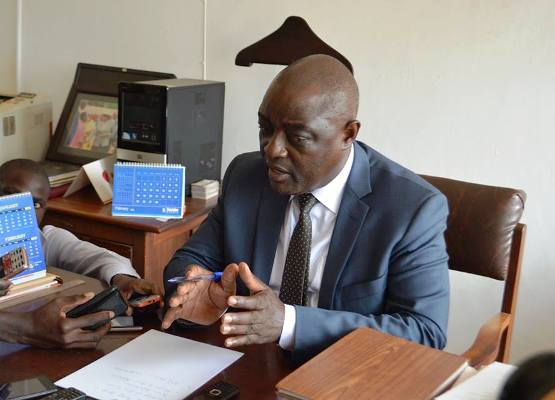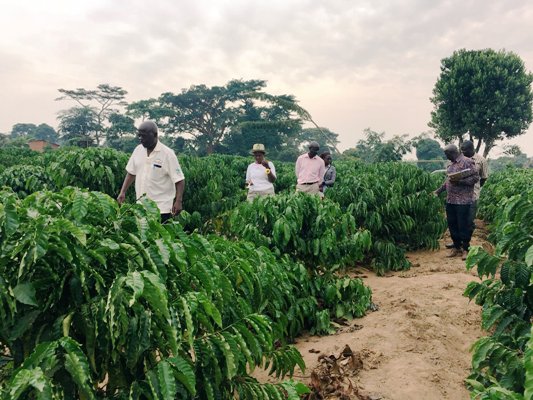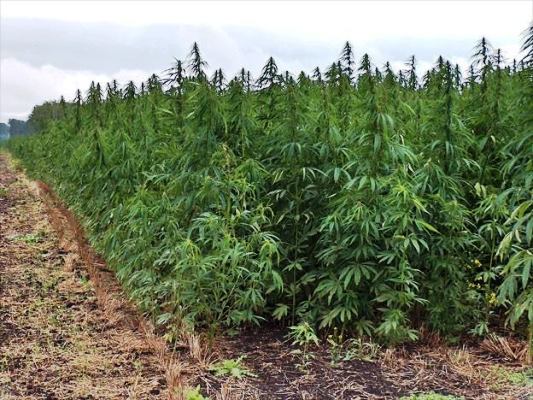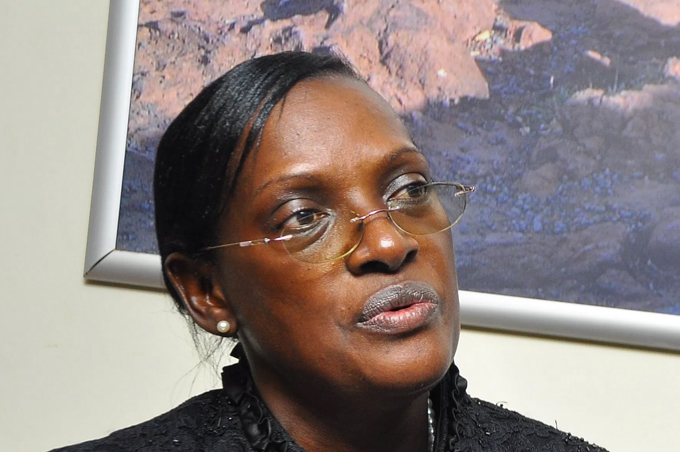The Government of Uganda has revealed new measures and steps being taken to increase coffee production and consequently transform the economy.
The new measures were revealed by Vincent Bamulangaki Ssempijja, the Minister for Agriculture, Animal Industry and Fisheries while addressing the press at the Uganda Media Centre yesterday.
The Minister was accompanied by Apollo Kamugisha, the Director for Development Services at the Uganda Coffee Development Authority (UCDA) which is the Coffee sub-sector Agency of the Ministry.
Ssempijja reminded Ugandans that in April of 2017, President Yoweri Museveni launched the coffee sub-sector roadmap with a national target of reaching 20 million bags of coffee exported per year by 2025.
He added that government has maintained coffee among the 12 Priority Commodities in the Agriculture Sector Strategic Plan and the National Development Plan that was designed to guide Uganda’s development to Middle Income Status.

He noted that by 2014, Coffee generated over $410.1 million which is 31.7% of the agricultural export revenues & maintained its position as the biggest agricultural export from Uganda with fish and fish products in second position, having generated over $134.8 million which is 10.4% of the total.
“Due this continued
support and prioritisation of the sub-sector by Government through the Ministry
and Agencies led by the Uganda Coffee Development Authority, Coffee fetched
over $492 million in the last Financial Year alone,” he said.
This represents a 19.9% increase in value of exports between 2014 and now.
Collaborating With Vietnam
He added that his Ministry has been seeking official collaboration with the Socialist Republic of Vietnam which is known to have experienced an increase in coffee exports from less than 2 million bags in 1991 to 27.5 million bags per year, making the Coffee sub-sector in Vietnam worth US Dollars 3.2 Billion.
“The Ministry was represented in the bi-lateral engagements with Vietnam by Hon. Christopher Kibanzanga the State Minister for Agriculture who was accompanied by Board Chairman and Director for Development Services of the Uganda Coffee Development Authority which is the Coffee sub-sector Agency of the Ministry. During the engagements that went on from the 18th to the 24th of March 2019, a Memorandum of Understanding between the Socialist Republic of Vietnam and Uganda was signed,” he said.
The Memorandum of Understanding which was signed by the State Minister from MAAIF and Le Quoc Doanh the Vietnamese Deputy Minister of Agriculture and Rural Development covers 14 main areas in the broad categories of Coffee production, animal health and Plant Protection.
Water for production
Ssempijja explained that his Ministry is stepping up efforts towards promoting increased availability and access to Water for Agricultural Production.
“This is being undertaken through the newly-instituted Department of Agricultural Infrastructure, Mechanisation and Water for Agricultural Production. This Department is nearing completion of new irrigation models for Coffee and the work done through the same Department will be supported by Senior Agricultural Engineers who are currently being recruited in every District,” he revealed.
He added that the Ministry will also reinforce promotion of appropriate use of fertilisers to increase productivity of Coffee.
“From experience in economies that are performing better, application of fertilisers can double the productivity per tree of Coffee. Fertiliser use in Uganda is currently estimated at about 4 kilograms per hectare per year, while in Vietnam it was reported to be about 1,200 kilograms per hectare per year,” he said.
The Ministry, he said, is also stepping up sensitisation of farmers through the Agricultural Extension System that now covers more sub-counties across the country.
“… the Ministry has so far recruited 3,811 out of the initial target of 5000 extension workers across the country. The current extension worker to farming household ratio is about 1:1800. This is an improvement from the initial ratio of 1:5000 in the 2014/15 at the time of reform. The internationally accepted ratio is 1:500,” Ssempijja said.
Government has also stepped up training and agricultural education through institutions like Bukalasa Agricultural College, the National Farmers Leadership Centre (NFLC), the District Agricultural Training and Information Centres and our Agencies including UCDA and the National Agricultural Research Organisation (NARO) through the National Coffee Research Institute.
“The Minister called upon farmers to work closely with the agricultural extension officers and to join registered farmer groups so as to benefit from bulk marketing, bulk selling and enhanced access to Government services and projects,” he said, adding: “This campaign for increasing coffee exports will continue through the above steps and more programmes being rolled out in partnership with the private sector, the media and development partners.”







Thanks a lot. we ask government to open agro shops in every town to help farmers gate proper Fertiliser, insecticides and harbisides. Jm kanyankore Richard from Muhangi village, mpasha parish, Rukiri sub-county, Ibanda south constituency, Ibanda district, western Region, Uganda. God bless u.
Thanks for improving coffe production in our country but we need also to improve on coffe value addition.thanks